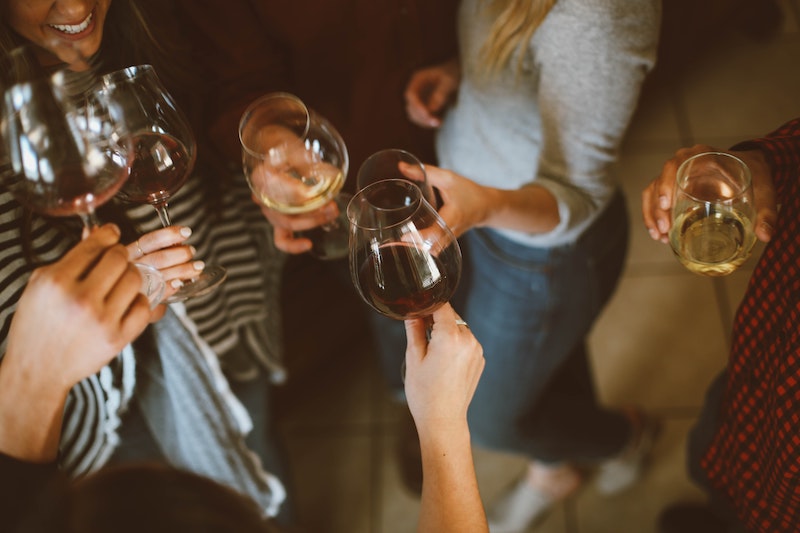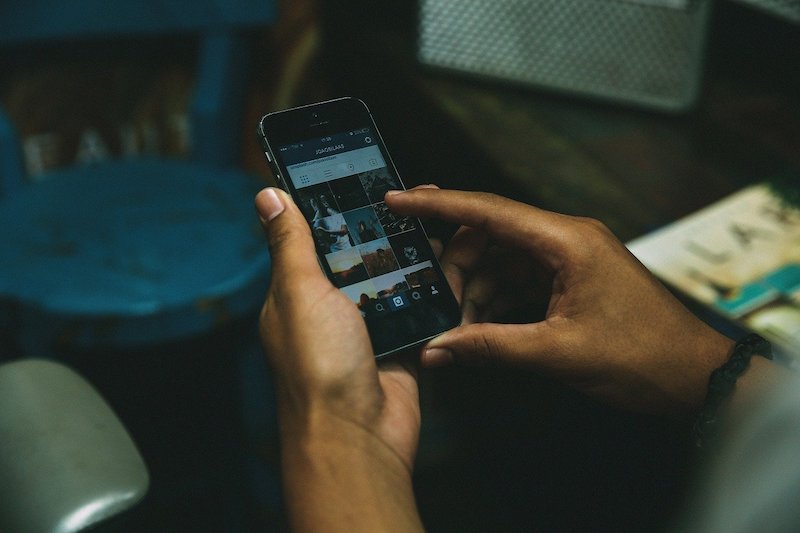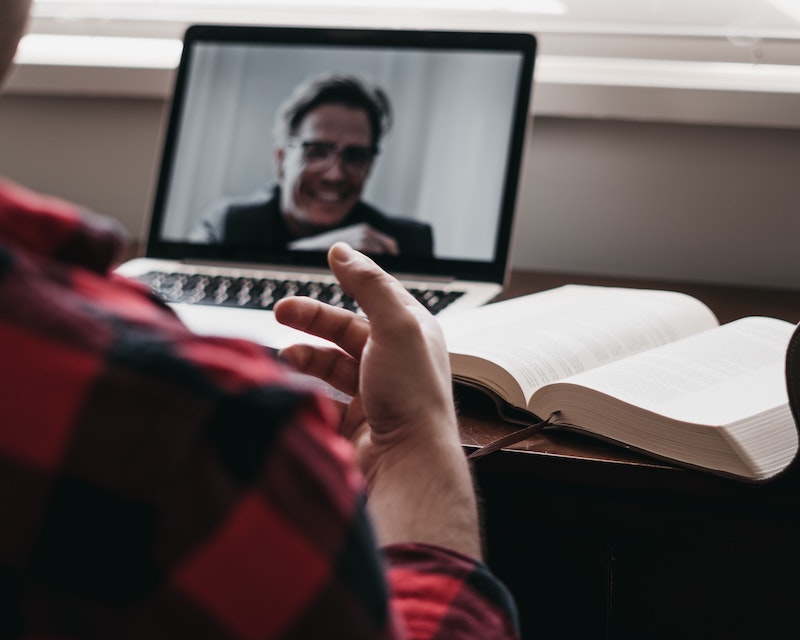
You’ve been in your house for months, connecting with friends over Zoom, nurturing your sourdough starter, and completing a 1,000-piece puzzle of a basket of kittens. So why’s your friend in Tulum with her eight best pals having the time of her life? Or what about your co-worker’s 25-person birthday party?
For those staying home, social media has become the primary window into the lives of friends and family, including the ones who post their disregard for public health orders. For some Southern Californians, it’s caused despair and anger, especially when paired with record numbers of COVID-19 infections, hospitalizations, and deaths this winter.
We spoke with several people about these complicated feelings. Because they’re talking about people close to them, we’ve allowed those who felt more comfortable being anonymous to choose their own pseudonyms. We also spoke with local mental health professionals about how we can best navigate these feelings, manage our emotions, and move forward or, if need be, cut ties.
“All I can think of is something dark, like, ‘That’s sad. You might just kill someone you love or end up getting really sick yourself.’”
Due to the pandemic, Belinda and her husband can’t afford childcare for their toddler, nor do they feel comfortable using daycare. They have to work, so they’re in a pod with Belinda’s elderly parents, who help babysit. To make sure they don’t pass the virus to her family, the couple hasn’t met up with any friends and have all food and groceries delivered. The only time Belinda’s left the house was to take her child to the pediatrician. The office felt safe, but she later found out her pediatrician had tested positive for COVID-19. Thankfully, the doctor did not pass it to her or her family, but the inherent risk in every interaction is still palpable.
“It’s especially jarring and upsetting for me when I see friends posting…images of them traveling for vacation, attending a party for their grandmother’s 90th birthday, or going on retreats with more than 20 people. And these posts are ones I’ve seen recently during the absolute worst chapter of this pandemic!” she told We Like L.A.
When Belinda sees these posts, she finds herself dissecting them, trying to figure out why some people are partying when others are dying. Sometimes, she makes excuses for them, especially if she knows they live alone or are struggling with an issue exacerbated by isolation. She’s noticed she’s more forgiving if the gatherings are outdoors, display social distancing, or only consist of a few people, but she finds it hard to justify much else.
“The worst is when they caption their images with some statement about how they all tested before seeing each other, even though we all know those tests only capture a moment in time and aren’t 100 percent accurate,” she said. “All I can think of is something dark, like, ‘That’s sad. You might just kill someone you love, or end up getting really sick yourself.’”
Belinda initially attempted to reach out to family members she felt were being unsafe, but came to the conclusion that she couldn’t control their behavior. Often, she mutes people to avoid feeling upset.
Though Belinda thinks she will move past most of her negative emotions, she’s more conflicted when it comes to the anti-maskers, anti-vaxxers, and conspiracy theorists in her social circle.
“I don’t know if I’ll ever be able to trust them again and believe they make sound decisions. I will instinctively just keep them at arm’s length. This makes me sad because some of those people are people I care about,” she said.
Jonathan, a writer from Orange County, has similar feelings. Every time he opens Instagram, he sees a friend or colleague “out and about in the world, maskless, enjoying their life like over 420,000 people aren’t dead from a pandemic.”
Despite knowing many of these people for years, Jonathan wonders how he’ll go back to being friends with them “when they have shown such careless disregard for everyone else.” And even if he avoids social media, he can still hear his neighbors throwing parties every weekend.
“My friend circle certainly got a hell of a lot smaller since March, and I feel like it will continue to do so as the next few months go on. My trust in my friends is gone and my faith in humanity is broken,” he said.

Ingrid Rosales is a 29-year-old customer service worker who recently relocated from L.A. to Oregon. In December, she began to notice friends in L.A. hinting at gatherings: posting snippets of parties where she could see four or more people in the frame, or tagging themselves in other cities or states. It’s more subtle than posting an airplane pic, she said, but “it’s pretty easy to put two and two together and conclude that friends of mine are going to gatherings/traveling.”
Rosales sympathizes with restless people nearing their breaking points and recognizes the significance the holidays hold for some and their families, but said she can’t condone the “willful ignorance” of those who chose to gather even after Public Health’s warnings around Thanksgiving.
“At the same time that I’m seeing people post about being at a bar in Texas, I’m also seeing friends document their personal experiences with COVID and their trips to the ER. I’m astonished that even with a precaution that was given 30 days before Christmas, people [chose] to disregard warnings. It reads as complete selfishness and it’s a slap in the face to the people I personally know whose lives have been affected by COVID,” she said.
While it’s easier for her to write off casual acquaintances, she’s conflicted over confronting close friends.
“I wouldn’t say I’m re-evaluating our relationship, but it’s definitely making me more conscious of their morals,” she said. “My generation has not experienced a pandemic before so this is new territory, but being socially and ethically conscious of everyone around you and helping prevent the virus from spreading is really easy to understand and to execute.”
“We were given the simplest moral test one can pass, yet we’ve taken the single free marshmallow.”
Chris, a 38-year-old composer in Montrose, saw the bulk of his film, theme park, and concert work dry up over the past year. He’s also lost family members, friends, and colleagues to the virus. He attended a funeral over Zoom, unable to be there in-person. Having experienced the harm of the pandemic firsthand, images of friends ignoring health recommendations leave him feeling disappointed and hurt.
“I’m hurt by the ones, especially romantic partners, who have chosen to travel [this winter], have recording sessions, fly in planes, and stay with family and friends out of state when they clearly know better. They explicitly chose to put others at risk and exhaust a fragile healthcare system for their own selfish ends,” he said.
Several months ago, talking to people in a friendly way seemed to resonate with those he saw still gathering, but now, after months of what Chris calls “lockdown fatigue and policy inconsistency,” he’s met with apathy instead. He’s unsure if he’ll maintain those relationships following the pandemic.
“I’m struggling with it every day, and feel like there may be some relationships I should let go of. It was one thing when violations stemmed from public policy confusion. However, at this point, there are no more excuses. Their defiance of precautions is petty and selfish,” he said. “Their decisions affect everybody, but especially the most vulnerable in our population. My friends and partners know this behavior is wrong, yet they refuse to act differently. We were given the simplest moral test one can pass, yet we’ve taken the single free marshmallow. With a shred of consideration, we would all have gotten two marshmallows by now.”
The marshmallows refer to a 1972 Stanford study that tested whether children would immediately take one offered marshmallow, or wait a period of time to receive two marshmallows.
The marshmallow study has been done several times with various results, but in the case of the pandemic, the analogy is apt. Had we followed recommendations and kept our numbers down, we likely wouldn’t have locked down again, nor would Southern California remain at 0% ICU capacity. People wouldn’t have sat in ambulances for hours waiting for space in the hospitals to open up. Perhaps the South Coast Air Quality Management District wouldn’t have suspended limits on how many bodies crematoriums are allowed to burn each day. In a statement on Jan. 17, AQMD said, “The current rate of death is more than double that of pre-pandemic years, leading to hospitals, funeral homes, and crematoriums exceeding capacity without the ability to process the backlog of cases.”

In the face of such grim statistics, it’s easy to feel angry, bitter, or sad. The question is, what can we do about these feelings other than stew in them?
Nick Bognar, a licensed marriage & family therapist based in Pasadena notes the sad irony of our isolation: it just gives us more time to scroll social media, building these negative emotions as we do so. But, he notes, if healthcare professionals haven’t convinced people to take things seriously, it’s unlikely you can. Instead, he advises focusing on what you need.
advertisements
“We are best served by protecting ourselves from the kind of content and interaction that will make us the most upset and resentful. If your Instagram is full of people making bad decisions and that’s making you feel upset, then change the programming,” he suggests. “Schedule a video chat with someone you know who is behaving responsibly. Play a video game online. Do an art project. Whatever you do, make sure that it is something that builds you up, rather than inviting in thoughts and feelings that will torment you.”
Epiphany Counseling founder Miyume McKinley, LCSW had similar advice. She recommends setting healthy boundaries with those who don’t share your safety values while spending time communicating with those who do.
“Oftentimes frustration comes from feeling that others are being careless and their actions are contributing to the spread of the virus. Then you begin to view them as the reason ‘safe-at-home’ orders continue to be enforced. As you focus on their behaviors and choices, which you have no control over, the more angry and powerless you feel,” she said. “Focusing on what is within your control reduces stress. Remember, you can control the safety precautions you choose to follow, what you consume in an effort to remain healthy (i.e., vitamins), who you choose to communicate with.”
Amanda Stemen is a Los Angeles-based licensed therapist and the owner of FUNdaMENTAL Growth, a therapy, coaching, and consulting business. She told We Like L.A. that she’s navigated this very topic with nearly all of her clients recently and believes the most important thing to stay as mindful as possible.
“Feel your feelings, whatever they may be and no matter how uncomfortable they are. And when I say feel them, I mean feel them in your body as the physical sensations you experience that tell you that you’re feeling a particular emotion,” she said.
So, for example, if your chest tightens when you see your cousin hanging out with grandma, that could indicate fear. If your face is getting hot while browsing your friend’s unmasked bachelorette party photos, that indicates anger.
“All emotions are valid so feeling our emotions allows us to validate ourselves and to let the feelings pass through rather than become stuck, which is what happens when we try to push them away,” Steman said.
This brings us back to the present, she said, as opposed to coming up with scenarios about the past or future that may or may not be true. It also allows us to hear what our emotions are telling us and then decide what we want to do with that information, whether that’s taking a break from social media, having a conversation with someone, or another empowering activity.

But what about when the pandemic’s over? Can we come back from this? Steman says that depends on the nature of the relationship.
“You may decide that certain relationships are no longer worth having in your life because you’ve realized your values are too different to find common ground with,” she said. “However, those that you decide are worth having in your life, but you still disagree with certain behaviors, having mindful conversations with those people will go a long way in feeling heard and understood and hearing and understanding them. That doesn’t mean you have to agree, but you may still decide the relationship is important whether you do or not.”
advertisements
If you do decide the relationship is over, you might not have to do anything at all. Stemen thinks many may just fade away, in part due to the natural dwindling of social circles as we’ve been unable to gather in large groups and have instead invested in our most important relationships. Also, relationships naturally fade all the time, even without a pandemic, as interests, values, and lifestyles change.
For those that aren’t apt to fizzle out on their own, and if you’re truly serious about ending them, both Stemen and Bognar think offering closure can be beneficial.
Stemen suggests being honest, but kind and nonjudgmental, taking responsibility for your part in the decision as you explain your reasons.
“It may be uncomfortable to be that frank, but ultimately, it’s mature and respectful. While we can’t control anyone else, we can show up as our best selves, which is always the best way to handle things,” she said.
Bognar also advises being upfront, honest, and succinct, then not responding to further communication. If the other person tries to argue, that’s where blocking comes in handy.
“Ending a friendship or romantic relationship or cutting ties with a family member can be one of the most healthy choices we can make. However, making that choice very often means deciding not to have the last word,” Bognar said. “That takes discipline—the discipline to make the best and safest decision for your self-care—and that’s the same discipline that will help many of us survive the pandemic.”
If those kinds of potential future conversations have you feeling anxious, McKinley has one more tip that’s far more enjoyable: plan a post-pandemic future. Granted, we don’t know when this will end, but McKinley said that doesn’t have to stop you from thinking about future trips, dinners, parties, or gatherings with friends.
“Plan as many as you like,” she said. “This can be a time to take a break from your duties and to instead, dream.”
advertisements
